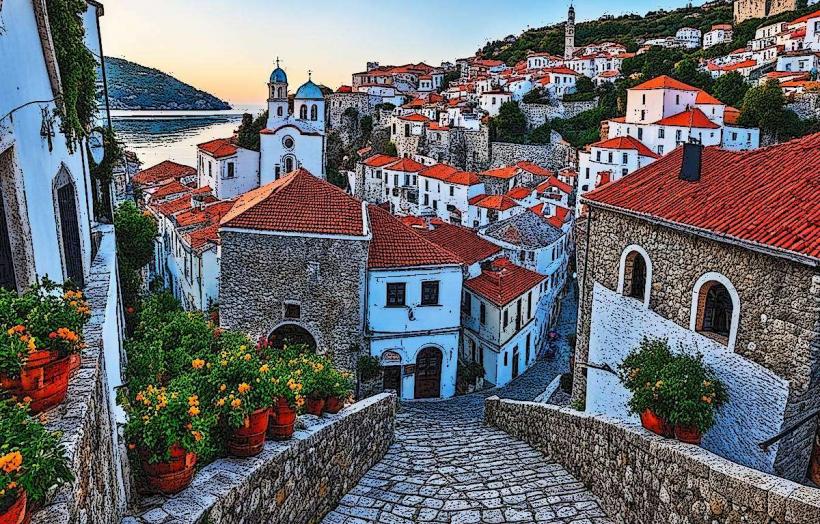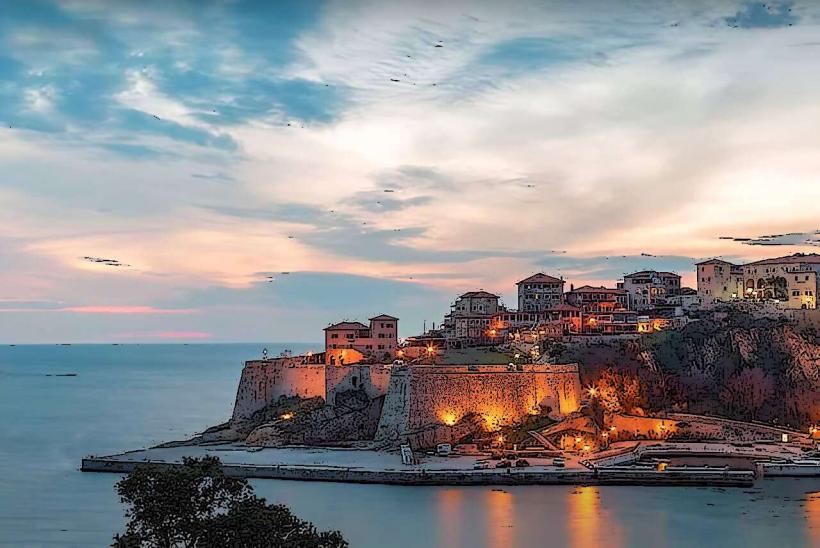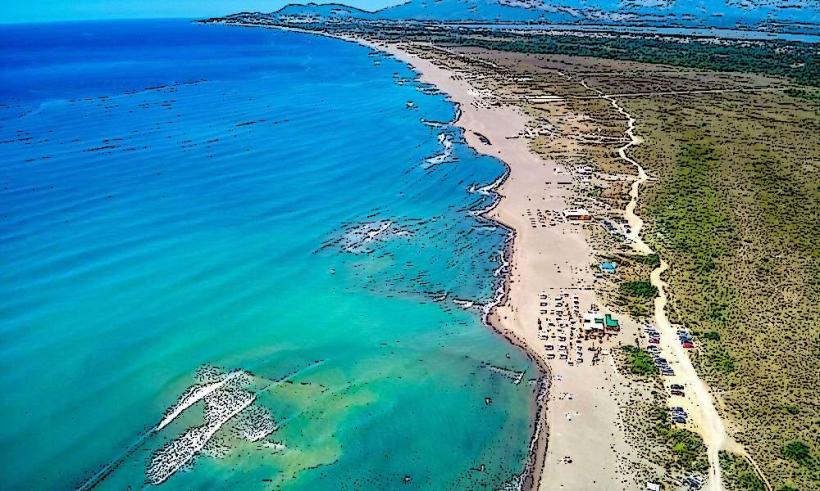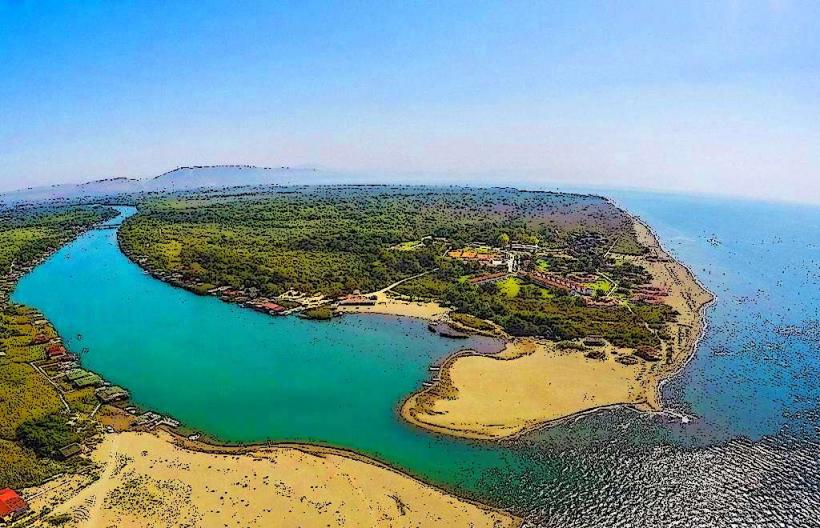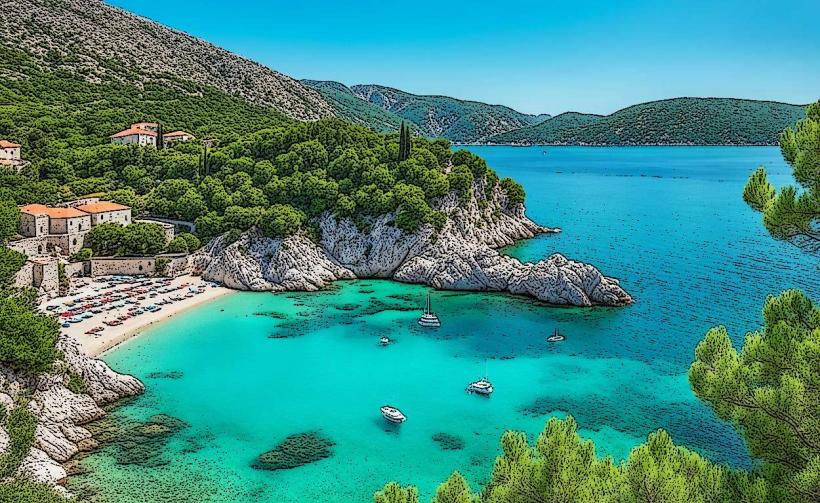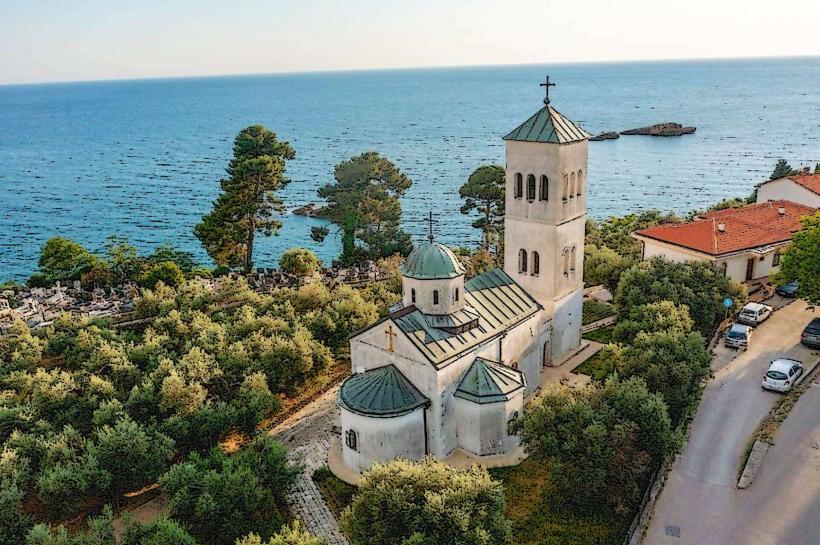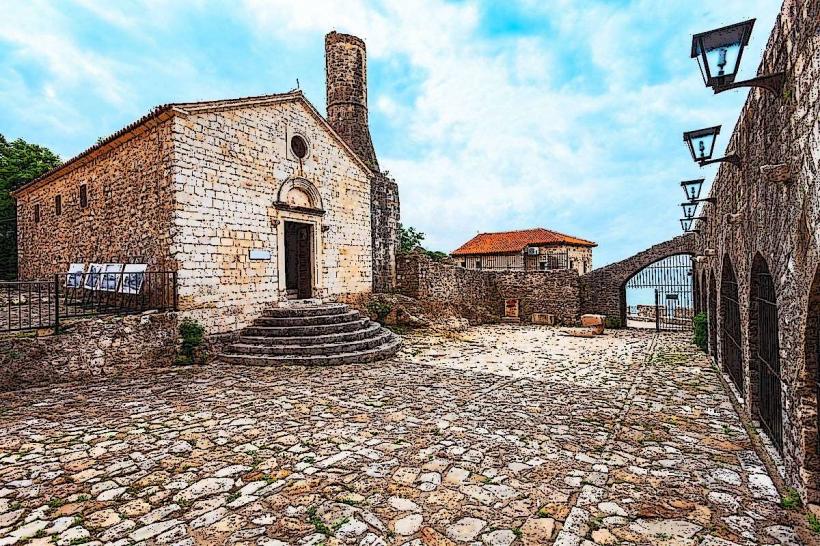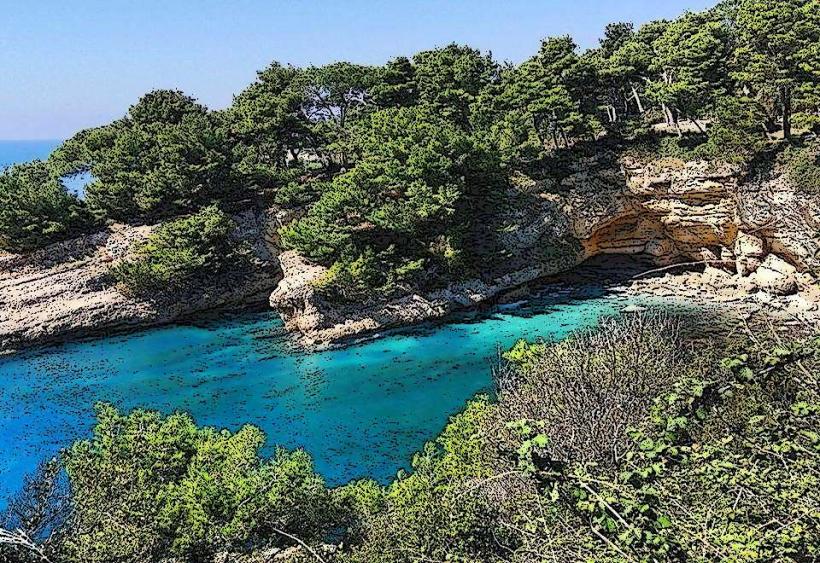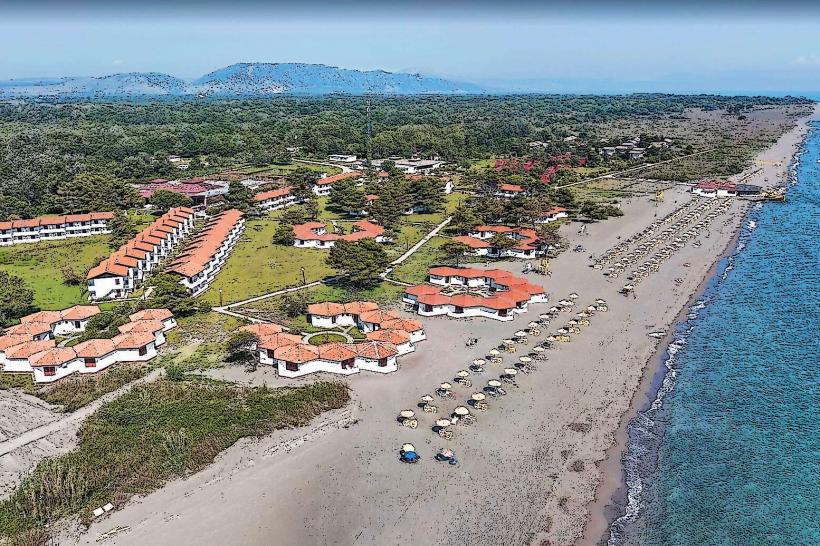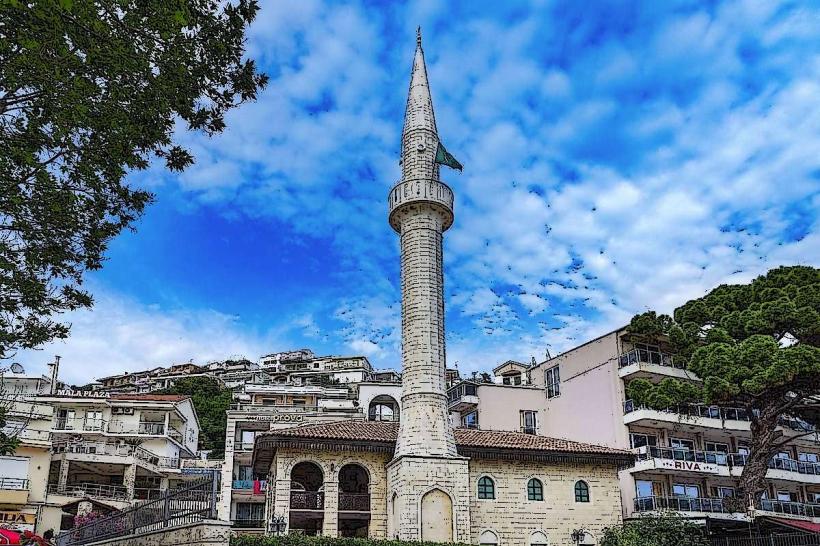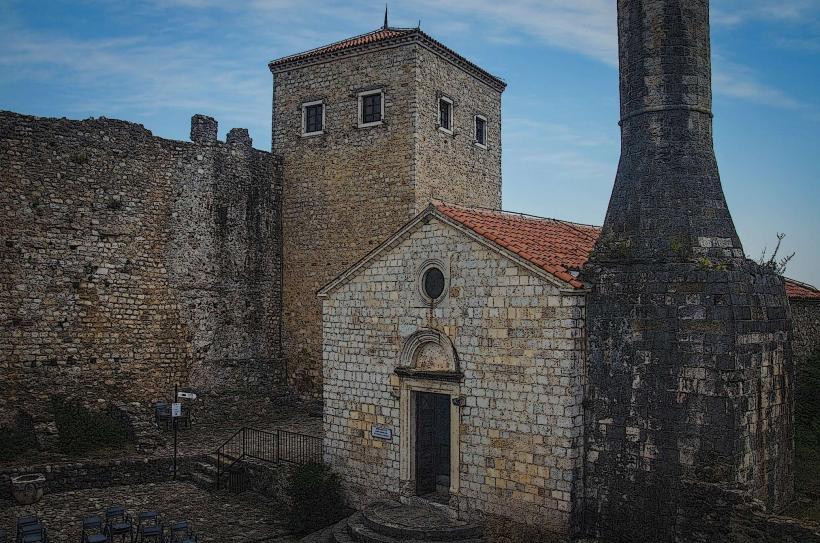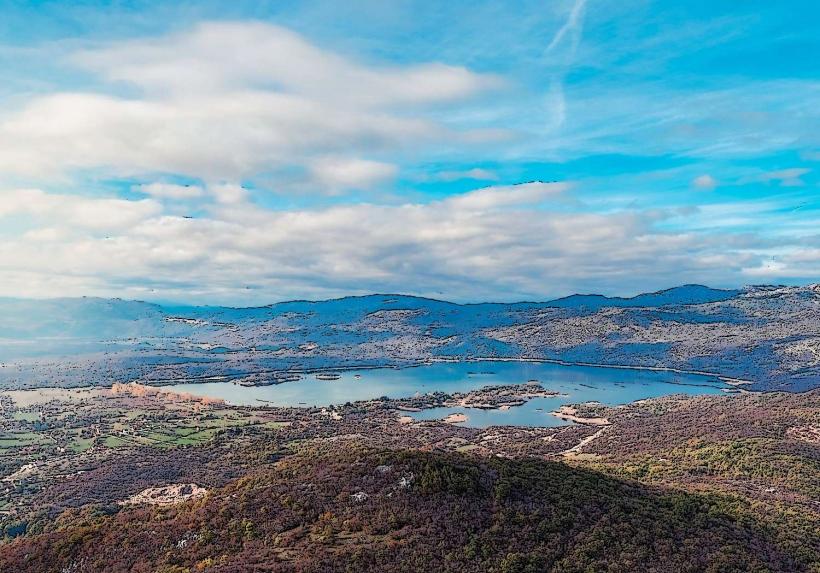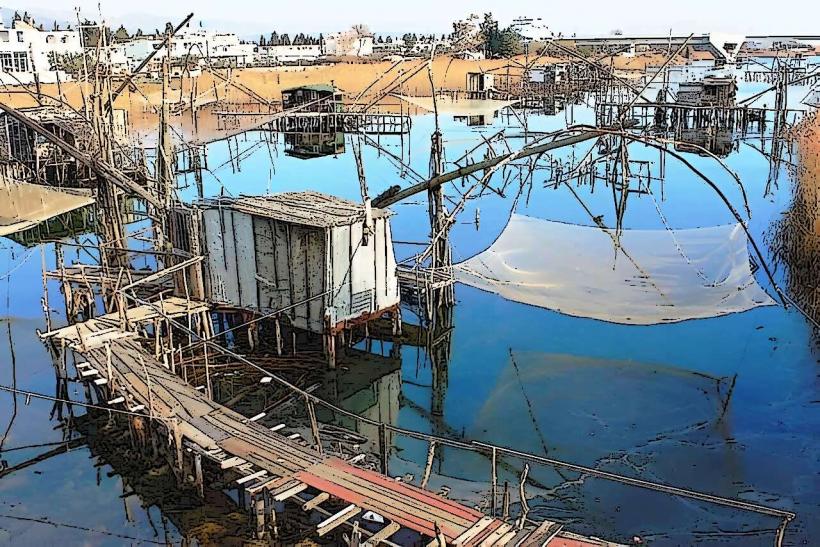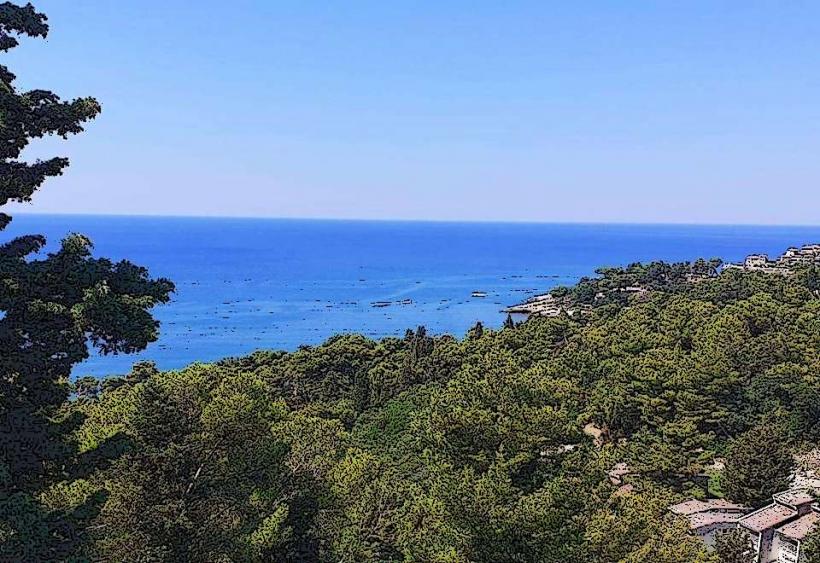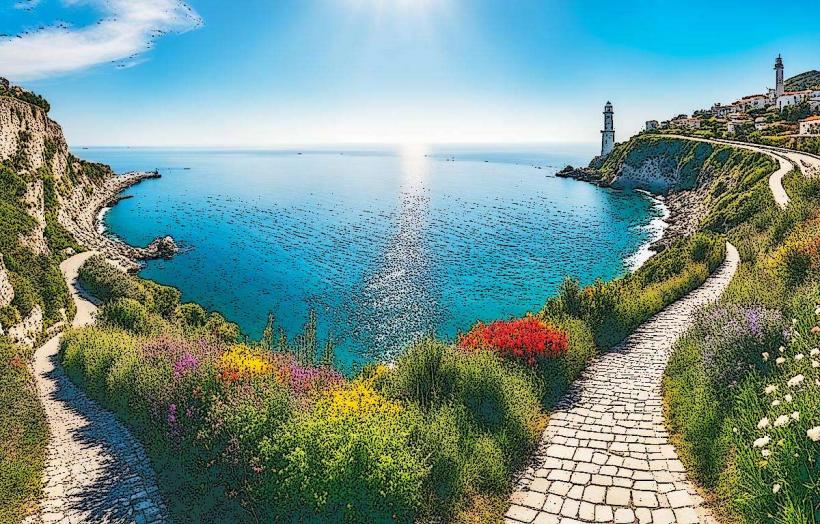Information
City: UlcinjCountry: Montenegro
Continent: Europe
Ulcinj is a historic coastal town located in the southernmost part of Montenegro, near the border with Albania. Known for its rich history, beautiful beaches, and multicultural heritage, Ulcinj is one of the oldest towns in the Adriatic region. The town has been influenced by numerous civilizations over the centuries, including the Illyrians, Romans, Venetians, Ottomans, and Albanians, all of whom have left their mark on its culture and architecture.
Geography and Climate
Ulcinj is situated along the Adriatic Sea, with a stretch of coastline that is known for its natural beauty. The town is located on a rocky peninsula, with stunning views of the surrounding waters and nearby mountains. The Ulcinj Riviera is known for its long sandy beaches, including the famous Long Beach (Velika Plaža), which is one of the longest and most beautiful in Montenegro, stretching for over 12 kilometers.
The region enjoys a Mediterranean climate, with hot, dry summers and mild, wet winters. The warm climate makes Ulcinj a popular summer destination, with tourists flocking to the area for its beaches, historical sites, and outdoor activities.
History
Ulcinj's history dates back to ancient times, with evidence of settlement by the Illyrians around the 5th century BC. The town was later conquered by the Romans and subsequently came under the control of the Byzantine Empire. Throughout the medieval period, Ulcinj was an important port and trading center, benefiting from its strategic location along the Adriatic coast.
The town became part of the Venetian Republic in the 15th century, before being captured by the Ottoman Empire in the 16th century. Under Ottoman rule, Ulcinj flourished as a center of trade, culture, and administration. The Ottomans ruled Ulcinj until the late 19th century when it became part of Montenegro after the Treaty of Berlin in 1878.
During the 20th century, Ulcinj became a popular tourist destination, especially following the establishment of the Socialist Federal Republic of Yugoslavia. In recent decades, it has continued to grow in popularity, attracting visitors from around the world for its natural beauty and historical charm.
Economy
Ulcinj's economy is primarily based on tourism, with the town drawing visitors for its beaches, historical sites, and cultural heritage. The town is also known for its salt production, which dates back to Roman times, and the Ulcinj Saltworks remains an important economic activity. Additionally, agriculture plays a role in the local economy, with the cultivation of olive trees, vineyards, and citrus fruits.
In recent years, the town has seen increased investment in its tourism infrastructure, including the development of resorts, hotels, and restaurants, as it continues to attract international tourists. The Ulcinj Marina, which accommodates yachts and boats, is another vital component of the local economy.
Culture and Heritage
Ulcinj has a diverse cultural heritage that reflects the influences of various civilizations that have inhabited the town over the centuries. The Ottoman and Venetian legacies are still evident in the town's architecture, while Albanian and Montenegrin traditions also play a significant role in the town's identity.
Key Cultural Highlights:
Old Town (Stari Grad): The historic core of Ulcinj is a maze of narrow, cobblestone streets, ancient walls, and buildings that date back to the Venetian and Ottoman periods. The town is built on a hilltop, providing panoramic views of the Adriatic Sea. Visitors can explore the old fortifications, watchtowers, and charming houses with red-tiled roofs.
Ulcinj Museum of Archaeology, Ethnology, and History: Located in the Old Town, this museum showcases the rich cultural heritage of Ulcinj and the surrounding region. Exhibits include ancient artifacts, traditional costumes, and historical items that highlight the town's diverse history.
The Church of St. Nicholas: This Serbian Orthodox church, built in the 19th century, is located in the heart of the Old Town. The church's architecture is a blend of traditional Orthodox and Byzantine styles, and it remains an important religious site in the town.
Mosque of Ulcinj: This mosque is one of the oldest in the region, dating back to Ottoman rule. It is an important center of worship for the town's Muslim community.
The Balšić Tower: This Venetian-era tower is part of the fortifications that once protected the Old Town. It provides stunning views of the surrounding coastline and is a popular spot for visitors to take photos.
The Sailor's Monument: Located near the Old Town, this monument commemorates the sailors who contributed to Ulcinj's maritime history. Ulcinj has long been a center for shipbuilding and maritime trade.
Beaches
Ulcinj is famous for its beaches, which are some of the best in Montenegro. The town is particularly known for its long sandy beaches, crystal-clear waters, and scenic coastal cliffs.
Long Beach (Velika Plaža): This is the longest beach in Montenegro, stretching over 12 kilometers along the Adriatic coastline. It is a favorite spot for sunbathing, swimming, and water sports. The beach is also home to several resorts, hotels, and restaurants.
Small Beach (Mala Plaža): Located near the Old Town, this beach is smaller but equally beautiful, offering calm waters and a relaxing atmosphere. It is ideal for those who want to enjoy the beach in a quieter setting.
Ada Bojana: A river island located at the mouth of the Bojana River, Ada Bojana is a popular destination for beachgoers and nature lovers. The island is known for its sandy beaches, clear waters, and excellent conditions for windsurfing and kiteboarding.
Miramare Beach: A pebbled beach surrounded by steep cliffs, offering stunning views and a more secluded atmosphere. It is ideal for those looking to escape the crowds.
Outdoor Activities
Ulcinj offers a variety of outdoor activities that allow visitors to enjoy the natural beauty of the region. Some popular activities include:
Water sports: The town’s beaches are perfect for water sports such as windsurfing, kitesurfing, and jet skiing. Ada Bojana is particularly known for its ideal conditions for these activities.
Hiking: The surrounding hills and mountains offer numerous trails for hiking and exploring nature. The Prokletije mountains, located nearby, are known for their rugged terrain and scenic views.
Cycling: Ulcinj is a great destination for cycling enthusiasts, with bike paths along the coast and through the countryside.
Fishing: The Adriatic Sea and the Bojana River offer excellent opportunities for fishing, whether from the shore, a boat, or a yacht.
Transportation
Ulcinj is well-connected to other parts of Montenegro by road. It is approximately 80 kilometers (50 miles) from Podgorica, the capital city, and about 30 kilometers (19 miles) from Albania. The town is accessible by bus, car, and taxi.
The nearest airport is Podgorica Airport, which serves both domestic and international flights. Additionally, Tivat Airport and Dubrovnik Airport in Croatia are within a few hours' drive.
Conclusion
Ulcinj is a charming town that offers a mix of natural beauty, historical richness, and vibrant culture. Its stunning beaches, historic Old Town, and diverse cultural heritage make it a unique and inviting destination for travelers. Whether you are interested in exploring the town’s historical sites, relaxing on its sandy beaches, or enjoying outdoor activities, Ulcinj has something to offer for everyone. It remains one of Montenegro’s hidden gems, perfect for those looking for a more tranquil and less commercialized destination.

